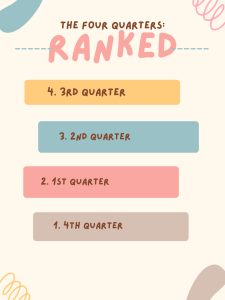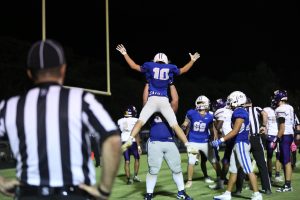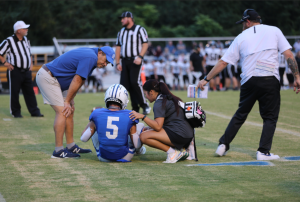Punishment System Needs Reform
November 9, 2016
Although it seems as though In School Suspension (ISS) is becoming more prominent, Out of School Suspension (OSS) is still frequently given to certain offenses.
Billy Thompson, a member of the administrative team, said, “If the offense has been great enough that it’s put someone in danger, like fighting, is an offense, that pretty much warrants an automatic out of school suspension. Certain things brought to school that are dangerous. Drugs, alcohol, things of that nature, those are our most serious offenses, and those are what we try to kind of say ‘this would be an automatic OSS’.”
I have no opposition to OSS when it is used in circumstances where offenses that are against the law, such as ones involving drugs or alcohol. However, I do oppose OSS when it is used to discipline much smaller offenses, like some of those listed in the student handbook, which Thompson referred me to.
When I looked in the student handbook (on pages 28 to30) I found a less than comprehensive list of violations and punishments. 28 school violations are written in a column and in an adjacent column, a corresponding list contains the suggested punishment for each violation.
One item in the violations column is, “Profanity and Inappropriate Language directed towards teachers, staff, and/or bus drivers.” Next to it is the punishment, “3 days OSS (Out of School Suspension).
Although cursing at school officials is certainly a reprimandable offense, it should not allow a student to leave the school environment, as it can be more effectively served by an ISS. In ISS, students are in an environment where they are required to complete their work and are forced to reflect upon their actions. These students are at school, seeing their friends, but unable to talk to them, and are confined to a single room for the entire day. This seems like a much more constructive punishment than allowing kids to go home and relax, where they may hardly consider the action that got them there in the first place. After all, in OSS, students are given a few days off, and can potentially get behind in their work.
Additionally many of the violations contain a “***” symbol. This symbol functions as a disclaimer that means, “Consequences will be based on severity and frequency of offense as deemed necessary by administration.”
The problem with the “***” disclaimer is that 20 out of the 28 offenses listed in the punishment column contain this disclaimer, along with a one-day, three-day, five-day, or 10-day ISS or OSS recommendation.
This makes it appear as though the punishments that contain these OSS or ISS recommendations are random, since, in almost every case, the decision made about punishment is based on the situation.
Instead of implying that every punishment is subject to the administrator’s’ decision, as well as including an OSS or ISS recommendation, administrators’ should save the three pieces of paper and just say that every decision on punishment is decided on a case by case basis.
Ultimately, I am not completely against the notion of Out of School Suspension. Some offenses are certainly not appropriately dealt with by an ISS, like fighting, but do not warrant an expulsion.
I sympathize with the hardships that the administrators face when determining disciplinary actions. Vast gray areas exist with regards to punishment, and administrators are required to make decisions in a short period of time.
I do not think, however, that Out of School Suspensions should be used simply because a student may not be able to keep up with schoolwork at an adequate rate or may be in danger of confrontation with another student.
When Out of School Suspensions are given for minor infractions they lose their purpose as a punishment and instead become a vacation for the student. Administrator should actively pursue alternative methods of punishment, like ISS or detention, and should severely minimize their usage of OSS.







